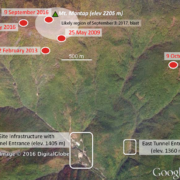From Oslo to The Hague – The journey of Abiy Ahmed Ali
Solomon Negash
Abiy Ahmed refused dialogue, opted for war, and resisted diplomatic pressure. Make no mistake. This has been his consistent position from day one. He never resolved any tension peacefully with any of his major adversaries at home, including Jawar Mohammed, Eskinder Nega, Lidetu Ayalew, Yilkal Getnet, and many more who are languishing in jail on trumped-up charges. Not even with his long-time comrade Lemma Megersa. He never tried even once to sit down with these people and resolve his political difference peacefully around the table. This says it all, Abiy Ahmed has never been a man of peace. It is not in his nature. Because, as he repeatedly declared and inscribed in his book, he dreamed of being in power for the next 10 years. Absolute power corrupts absolutely, right?
I was among those who celebrated the day he was selected as a winner of Nobel Peace Prize in 2019, even if he never did anything notable to deserve such a prize. But I saw it as an opportunity to encourage him to make peace at home, be committed to successful political transition, and to get the attention and support from the international community to help Ethiopia overcome the eminent danger of collapse it was and still is facing. But sadly, he used that opportunity to consolidate his political power at the expense of peace and stability of the country.
I said, he never did anything notable to deserve such a prize. It may sound an outrageous claim but let me clarify.
The “no peace, no war” condition that lasted for two decades was basically a reflection of the deeper conflict that existed for decades between two dominant political parties: TPLF/Tigray and PDFJ/Eritrea. While in power TPLF called for peace on several occasions, but Eritrea has never been willing to answer such calls. PDFJ sees TPLF as an eternal enemy who ruined the dream of EPLF (former PDFJ) and young Issias to become a leading power in the region. For example, the former Prime Minister Hailemariam Desalegn, made calls for peace several times, but Pr. Issaias Afewerki was not interested. He refused to negotiate with a “puppet” (his word). When Abiy came to power and signaled his interest to make peace with Eritrea (which was decided by EPRDF centrally as part of their reform agenda before Abiy came to power), Pr. Issaias did not show any interest and never answered for several weeks. Only when he noticed that Abiy entered a new chapter in his power dynamics that Afewerki showed interest. It was when he knew Abiy was determined to get rid of TPLF leaders from Menelik palace, and when he witnessed the key leaders of TPLF left Addis Ababa for Mekelle, that Afewerki reconsidered and answered for the call. In a way, he was the main player for the two nations to coming to the so-called “peace”, which was later prized by many.
For those who knew the history between these two rivals, there was no genuine peace to celebrate. There was and still is a tactical alliance between two groups who have a common enemy, called TPLF. As Kjetil Tronvoll, a leading expert on Ethiopia and the Horn of Africa, once accurately described it, “the ultimate goal of Isaias Afewerki is to crush TPLF and to inflict revenge upon Tigray”, not peace. Thus, what seems progress in peace is actually and paradoxically a broadened conflict which sucks in several new actors into play. The two actors that were in conflict are still in conflict, but this time joined and backed by several other actors (such as, Prosperity Party and the ethnic based militias from the Amhara region) which sided with PDFJ.
It is the alliance of these groups that declared war today not only against TPLF, but also against the people of Tigray. What started by marginalizing and discriminating ethnic Tigrians, for example, banning from national sports, cutting budgets, preventing humanitarian aid from entering Tigray, and refusing to send medical appliances related to COVID19, is now upscaled to a full-fledged war that involves aerial bombardment including in densely populated towns. (And yes, Ahmed declared and warned about this live on national television.) As such, Abiy Ahmed begins to commence on a new road, from Nobel Peace center in Oslo to ICC in The Hague, in just one year.


Leave a Reply
Want to join the discussion?Feel free to contribute!